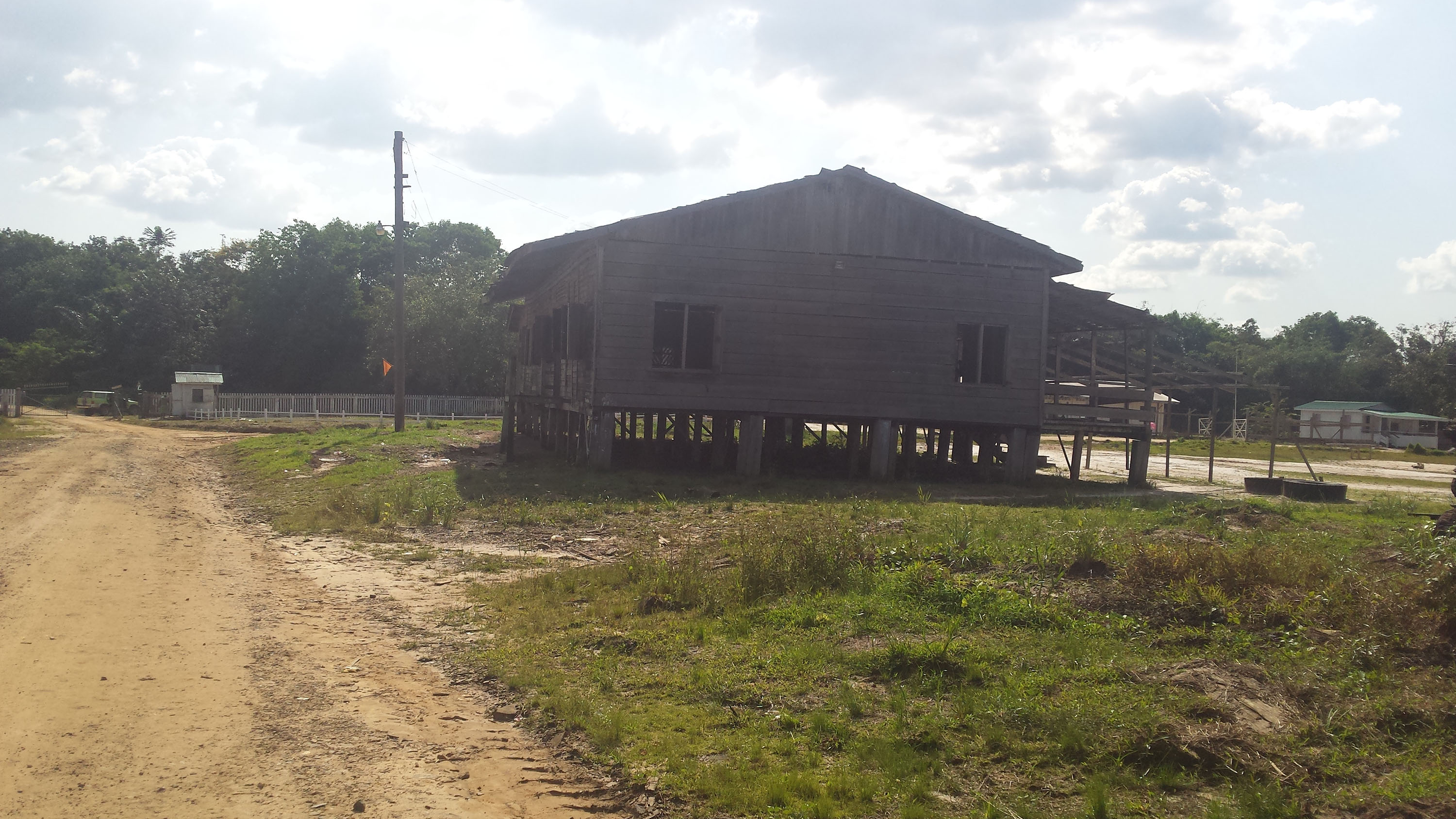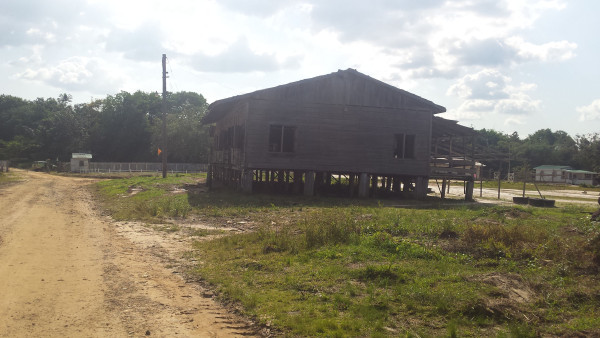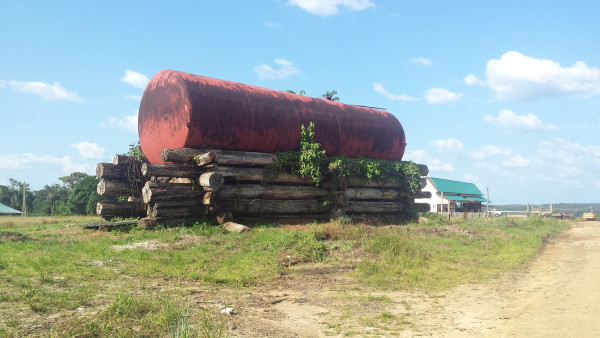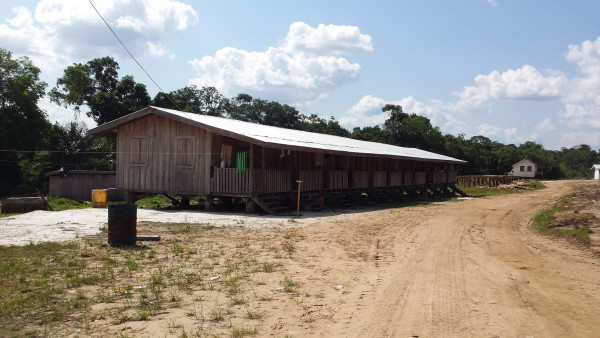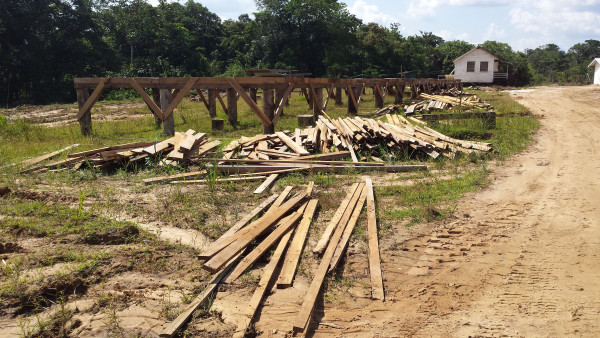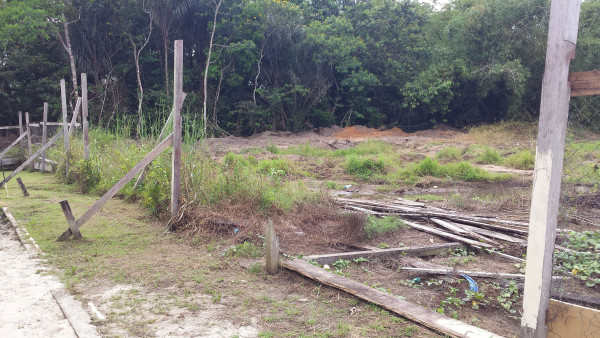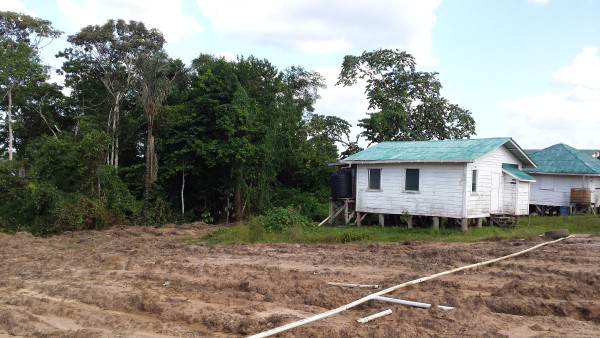Cramped, tiny cottages that must be shared by up to five people, with leaking roofs, poor electricity supply and intermittent running water are what many Vaitarna employees who reside at the company’s compound at Wineperu are forced to endure.
Employees of Vaitarna Holdings Private Inc (VHPI) were wary of talking to the media for fear of reprisal. Nevertheless, under conditions on anonymity, workers stated that their living quarters were less than desirable and that complaints fell on deaf ears.
This publication was shown rotting ceilings in small cottages that house up to five persons with rooms barely large enough for a single bed in some cases.
Stabroek News was told that when it rained, it would be impossible to identify which part of the roof leaked as water came from all corners.
Workers said that after spending up to four weeks in the backdam it was exhausting to return to the base camp and be greeted with inconsistent electricity and no water.
One employee told Stabroek News that during the day the power was mostly off. Additionally, the lack of potable water meant that they had to venture to town to buy water on what was often their only day off.
More alarming was the fact that in the backdam the conditions were even worse. Stabroek News was told that workers at one camp pooled money to buy a generator in order to get their work done as the one provided by the company was always being sent to Georgetown for repairs. The employees related that the decision was taken to because their pay was dependent on the work they completed. He said that without the generator nothing was getting done. He noted that the company provided the diesel needed, but there had been no discussion of reimbursement.
Another employee working in the backdam, relayed that some camps had no electricity at all and at times they were expected to complete work while it was getting dark.
Stabroek News was told that at the homestead a large storage tank was normally filled with water, but that was not guaranteed and as such water was scarce unless it was collected regularly and stored.
There is a church on site that also collects water which residents can use if they need. One resident told Stabroek News that his family has been out of drinking water for days and was fully reliant on the church’s reserve until a trip to Bartica or a closer community that would allow for the purchase of drinking water.
A new set of logies could be seen being constructed around the compound to house single employees. However Stabroek News was told that some families do occupy the cramped spaces with toilets and baths constructed outside.
A manager later said that the company was working on making the homes more accommodating and that much work has been done. But he was rather evasive when asked directly about the lack of flush toilets and consistent water supply.
He highlighted that the head office was equipped with land line services, but the workers told Stabroek News that this was not always made available to them.
A community centre in the area stood forlornly, its steps rotting while small children could be seen playing close to their homes. Stabroek News was told that only photographs that were approved could be taken.
Meanwhile, residents in the compound as well as in the surrounding area had nothing but praise for the nursery and primary school located at Wineperu. The only consistent complaint was that workers’ payments were often delayed by days or weeks and as such many parents have been unable to send their children to secondary school.
Stabroek News was told that Vaitarna had promised payments for the past week, but up to the time this newspaper visited on Thursday of last week none had been forthcoming. Guyanese workers—there are also workers from the Philippines and India—are concerned that since the company pays in cash their National Insurance Scheme (NIS) contributions may not be in order.
Given that days off are few and far between many employees do not have the time to travel to the necessary offices to ensure that their NIS and PAYE are in order.
